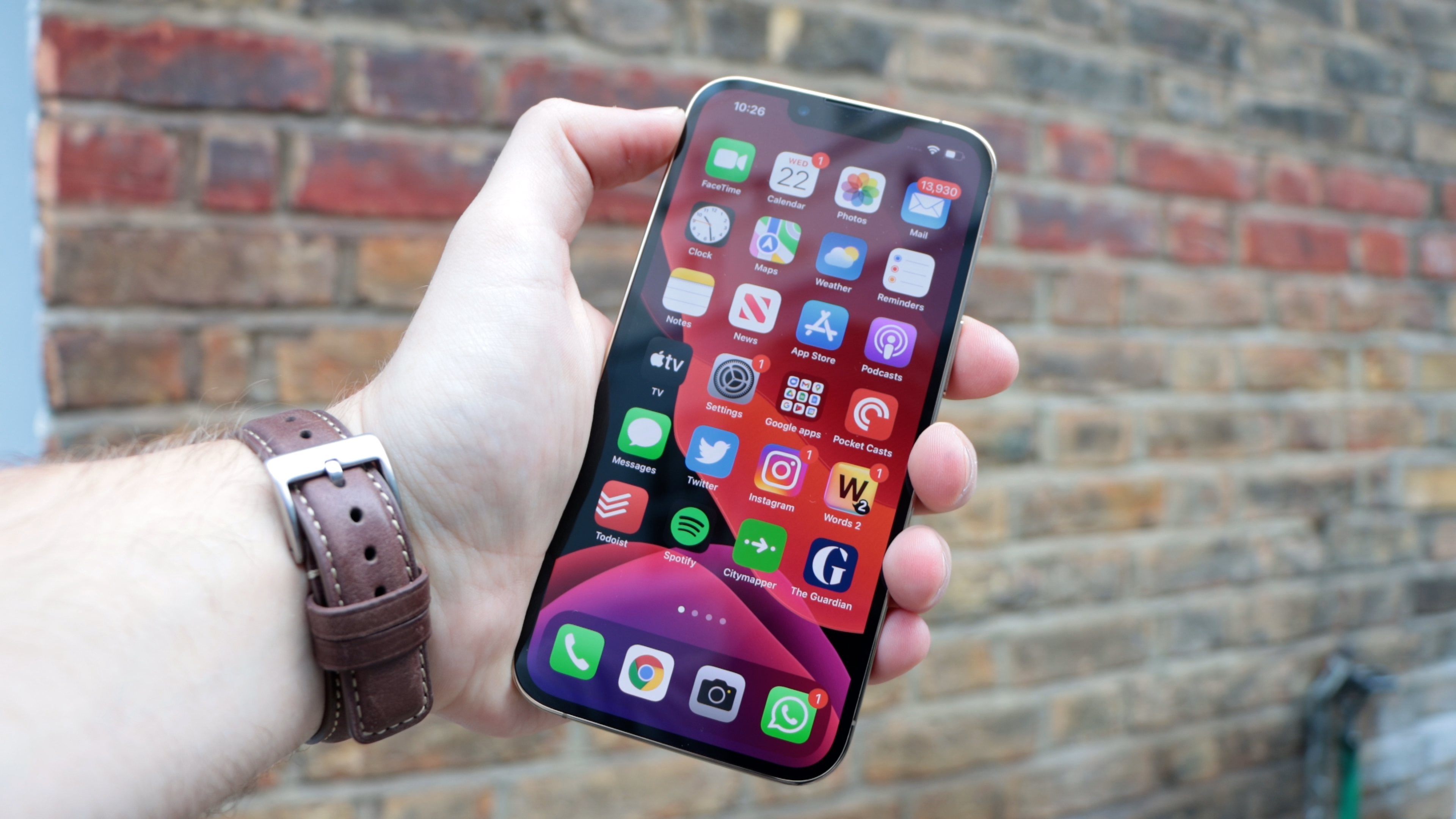iPhone 14 might not be that much more powerful than the iPhone 13
5nm all over again

The iPhone 14 is sure to be a powerful phone, but it might not get quite as big a boost in power as we’d hoped, as Apple could be stuck using 5nm chipsets again, as it did with the iPhone 13 and the iPhone 12.
That ‘5nm’ refers to the manufacturing process used, and a lower number can mean more power and better energy efficiency, without increasing (or certainly without significantly increasing) the size of the chipset.
Apple has used the same 5nm process for its last two iPhone ranges, and according to a report in The Information it might do the same again for the iPhone 14.
- Read our full iPhone 13 Pro review
- See what we think of the iPhone 13 Pro Max
- These are the best iPhones
That’s because while TSMC (the company that produces the iPhone chipsets) is working on switching to a 3nm process, it apparently won’t be able to make the change in time for the iPhone 14 range.
If that's the case, this would be the first time Apple has been stuck with using the same smartphone chipset manufacturing process for this long, and it could give rivals such as Samsung a chance to catch up.
That said, we’d take this with a pinch of salt for now, especially as previous leaks have suggested the iPhone 14 would use a 3nm chipset. We’ve also previously heard that a 4nm process could be used – so perhaps that could be an option if TSMC can’t make the full switch to 3nm in time.
Analysis: a 5nm process could still leave Apple in the lead
Even if the iPhone 14 does use a 5nm process, that doesn’t mean it won’t be an enormously powerful handset. The A15 Bionic in the iPhone 13 includes a CPU that’s up to 50% faster than any of the competition, and that’s despite being made using the same process as the A14 Bionic in the iPhone 12.
Get daily insight, inspiration and deals in your inbox
Sign up for breaking news, reviews, opinion, top tech deals, and more.
So based on that, there’s no reason to think Apple can’t eke even more out of the A16 Bionic (or whatever that chip ends up being called) in the iPhone 14. And even if it doesn’t end up being a big upgrade over the A15 Bionic, Apple’s current chipset is far enough ahead of rivals that the A16 Bionic will probably still be the fastest smartphone chipset of 2022.
- Check out the best iPhone apps
Via 9to5Mac
James is a freelance phones, tablets and wearables writer and sub-editor at TechRadar. He has a love for everything ‘smart’, from watches to lights, and can often be found arguing with AI assistants or drowning in the latest apps. James also contributes to 3G.co.uk, 4G.co.uk and 5G.co.uk and has written for T3, Digital Camera World, Clarity Media and others, with work on the web, in print and on TV.